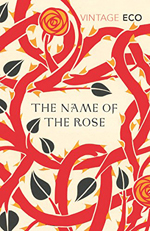Next door to my primary school was a library. By the time I was about 10, I visited that hushed world full of books every afternoon on my way to the bus stop. I can still smell the parquet floor, the long shelves, the racks of books and remember how the librarians, once they got used to the kind of things I borrowed, would keep books back for me behind the desk, revealing them like presents.
 For a while, I worked in libraries, in the days when your ticket was a little cardboard envelope into which the date slip of your book was placed. I liked the satisfying kerchunk of the date-stamping machine, printing the return date in the books. I enjoyed leafing through the long racks of tickets to find the right one when books were returned, and taking piles of books to return them to the shelves.
For a while, I worked in libraries, in the days when your ticket was a little cardboard envelope into which the date slip of your book was placed. I liked the satisfying kerchunk of the date-stamping machine, printing the return date in the books. I enjoyed leafing through the long racks of tickets to find the right one when books were returned, and taking piles of books to return them to the shelves.
I used to take my children around the corner to the small local library – parquet floor again – for them to choose big colourful books, from bright plastic boxes. We’d leaf through the pages of bold illustrations and tempting words, sitting on the floor. That library, and the cascading blossom tree in front of it, are gone, replaced by a block of flats and a small hedge.
The banking crash of 2008 led to the well-know programme of cuts to public services. Libraries were some of the key targets, as councils had to slash their spending because central government granted them less money. In ten years, spending on libraries fell by 30%, leading to the closure of hundreds. As with so many of the cuts, they affected those who could least afford them. It seems to be very late, then, for politicians to recognise that libraries are actually a key component of communities, making a vital contribution to the quality of life and helping to maintain life and footfall in towns. Having such public spaces available is crucial, and belatedly, a UK parliamentary committee has called for support for libraries, rather than cuts.
The idea of libraries being forbidding places, with large ‘Silence’ signs and waspish librarians with fingers to their lips is thankfully now dissipated. Libraries are welcoming treasure troves. I recently rejoined my university library. It used to be housed in an old building, with a warren of creaking wooden staircases and lofty-windowed rooms, whereas now it’s a brand-new building with metal shelves on sliding tracks, but still fantastic to get lost in, finding surprises and old friends as the hours slip by.
 Libraries unsurprisingly feature in fiction quite a bit, passionately for Robbie and Cecilia in Atonement, for example. One of my favourites, though, is the one at the centre of Umberto Eco’s The Name of the Rose, a thriller set in a medieval monastery where the secrets held in books. The question of how books are interpreted, and why they are forbidden, makes it one of the most intelligent thrillers you are likely to read.
Libraries unsurprisingly feature in fiction quite a bit, passionately for Robbie and Cecilia in Atonement, for example. One of my favourites, though, is the one at the centre of Umberto Eco’s The Name of the Rose, a thriller set in a medieval monastery where the secrets held in books. The question of how books are interpreted, and why they are forbidden, makes it one of the most intelligent thrillers you are likely to read.
As Joseph Mills says in his poem ‘If Librarians Were Honest’:
the shelves of a library
contain sensational novelties,
a scandalous, permissive mingling
of Malcolm X, Marx, Melville,
Merwin, Millay, Milton, Morrison,
and anyone can check them out,
taking them home or to some corner
where they can be debauched
and impregnated with ideas.